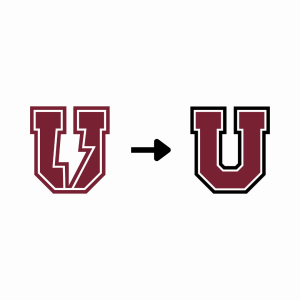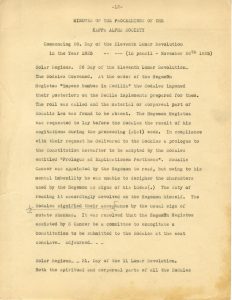Steering committee begins self study to renew MSCHE accreditation
September 27, 2018
Accreditation is the process in which an institution of higher education, after submitting a self-study to a peer review board made up of faculty from other accredited academic institutions, is reviewed by that board and deemed legitimate.
This validates the degrees given out by that educational institution.
Union receives accreditation from two boards: the Middle States Commission on Higher Education (MSCHE), which reviews most of the programs at Union, and the Accreditation Board for Engineering and Technology (ABET), which reviews the engineering departments.
During the 2020-2021 academic year, Union will be reviewed by the MSCHE in order to renew its accreditation.
Before this will happen, a steering committee, led by Vice President for Academic Affairs Strom Thacker and Director of Religious Studies and Jewish Studies Peter Bedford, will conduct a two-year selfevaluation of the College.
These evaluations will be carried out by eight work groups that address the seven standards laid out by the MSCHE that each institution must meet to receive accreditation.
The seven standards are: mission and goals; ethics and integrity; design and delivery of the student learning experience; support of the student experience; educational effectiveness assessment; planning, resources and institutional improvement; governance, leadership and administration.
The steering committee will assess how well Union meets these standards over the course of the next two academic years.
In the following year, the College will be observed by representatives of the MSCHE to assess the validity of this self-study.
These standards are not only meant to ensure the educational standards of educational institutions but their ethical standards as well.
According to the MSCHE’s Standards for Accreditation and Requirements for Affiliation handbook, educational institutions must have education “as [their] primary purpose” and the standards mentioned above are to be kept and enforced to ensure that this is the case.
Many of the criteria that institutions must meet have to do with ensuring that schools use their resources to further a mission that they clearly outline and communicate with their students, staff and faculty, as opposed to furthering personal gain of administrators and other employees of the school.
Union’s mission statement, as outlined on the Union College website, is for “faculty, staff and administrators to welcome diverse and talented students into [the] community, work closely with them to provide a broad and deep education and guide them in finding and cultivating their passions…” “We develop in our students the analytic and reflective abilities needed to become engaged, innovative, and ethical contributors to an increasingly diverse, global, and technologically complex society.”
This mission is promised to be accomplished through “a wide range of disciplines and interdisciplinary programs in liberal arts and engineering, as well as academic, athletic, cultural, and social activities.”
The school cites studying abroad, undergraduate research and community service as three primary ways to further their mission.
Additionally, the “beliefs” of Union are listed below the mission statement.
These values are as follows: educating broadly and deeply; sustaining resources; reflecting personal and diverse views; educating mind, body and spirit; asking questions that matter; furthering a history of innovation; contributing to humanity; thinking locally and globally; and integrating thought and action.
Many of these values have been repeatedly cited as values that can be derived from liberal arts education.
Lynn Pasquerella, the President of the Association of American Colleges and Universities, argued this in June as the keynote speaker during the Annual College Symposium on Integrating a Liberal Education with Engineering.
On Wednesday, September 26, Dr. Idna Corbett came to Union as a representative of the MSCHE in order to initiate the self-evaluation process.
Corbett participated in a panel in Olin 115 during common hour to explain the accreditation process and answer questions fielded to her by students, faculty and staff in attendance.
Thacker and Bedford also answered questions during that hour.







